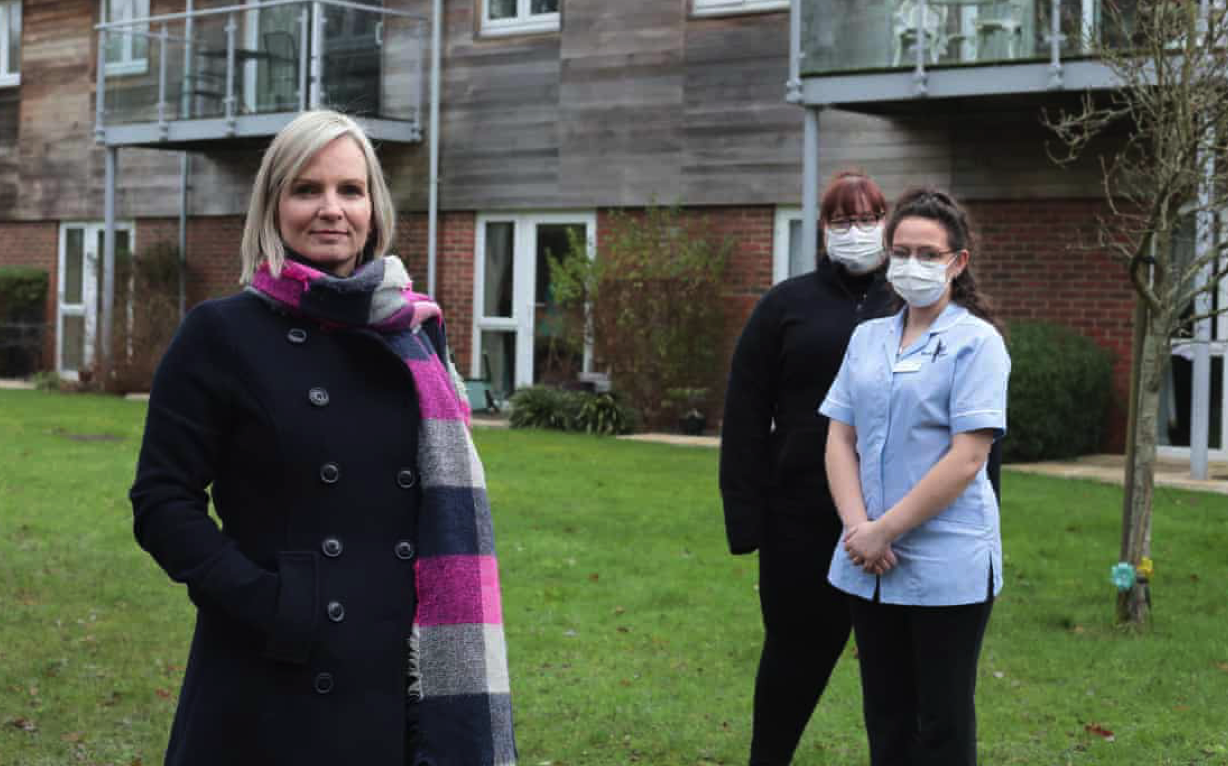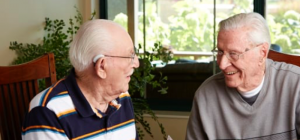
The Guardian reports on a new training programme in care homes that demonstrates how seemingly mundane tasks, like making a drink or polishing is good for residents’ wellbeing:
Juliet Rix, 14 January 2021
“When you woke this morning the clothes you planned to wear were gone. The shower gel smelt weird – it wasn’t your usual. There was no hairdryer to dry your hair. You wanted to make a hot drink but you had no access to a kettle … How is your day going? How do you feel? Welcome to the lives of many people with dementia living in care homes.”
This, The Guardian reports, is the opening of a new training programme for care home staff developed by Dr Kellyn Lee, chartered psychologist and research fellow in ageing and dementia at the University of Southampton. Called ‘material citizenship’, the programme aims to get staff thinking about the importance of mundane, functional objects to our lives and identities, and how giving their residents agency over these things can significantly improve their wellbeing.
As Rix points out, “some 850,000 people in the UK are living with dementia and about 70% of care home residents have the condition or severe memory problems. So as Charlotte Gilbert, manager of Brendoncare Knightwood, a care community near Eastleigh, Hampshire, which includes the 20-bed Knightwood Court care home says, “anything that delivers a better quality of life to these people without a huge input of resources is very valuable.”
She and the care home’s senior care assistant, Becci Fletcher, were among five staff from Knightwood who participated in the first one-day material citizenship course (moved online due to Covid). They credit the training with improving their practice as well as making them feel good about their work and the difference they can make – a welcome morale boost, mid-pandemic. Crucially, they say, it has “definitely” made life better for people in their care.
“One of our residents really wanted to polish her own room with a particular polish,” says Gilbert. Initially this was seen as unnecessary: the cleaning staff were there to clean. “But now we’ve got her the polish she wanted. She polishes her room and it makes it smell like home.”
“Another resident goes around collecting up all the trays after breakfast,” adds Fletcher. “Before the training we would say, ‘don’t worry, we’ll do that’ but now we let her do it. She enjoys it. She feels she’s looking after people and it gives her more sense of worth.”
Rix reports that Lee first became concerned about the culture in care homes while working in the sector as a 19-year-old student. “It was awful – all these people sitting in chairs waiting for something to happen, or getting agitated and being labelled ‘challenging’.” The idea that ordinary objects might prove a key to improving wellbeing came later through her work as a therapeutic psychologist.
“I had a client who was struggling with her relationship with her mother who was in a care home. One day my client said she had had a really good visit after taking in a flask of tea. She had no idea why the flask made a difference.” Lee suggested it might be because it gave her mother control – she did not have to ask the staff to bring their tea, instead pouring it out herself as she chose.
From this grew Lee’s Phd: qualitative research in two care homes in southern England, which found that residents with dementia often moved in directly from hospital, without a chance to go home and select possessions, writes Rix. They were frequently excluded from the decision-making process and objects were even removed from their rooms without their knowledge or permission. In the risk-averse atmosphere of residential care, says Lee, few residents had access to functional objects, let alone freedom to use them as they wished. She concluded that a better understanding of “material citizenship” could “support a rights-based approach to dementia care by using functional objects as an enabler to balance protection and empowerment”.
With funding from the Economic and Social Research Council’s Impact Acceleration Account, Alzheimer’s Society and Brendoncare, Lee developed the training that has now led to Fletcher and Gilbert putting this into practice: “We have a resident who is very wobbly on her feet, but really wanted to go into the kitchenette and make herself a cup of tea. There was obviously a risk of her spilling boiling water and burning herself, so we had a discussion about it. Now she goes in and puts the tea bag and sugar and milk into the cup. Then we go in and add the boiling water. It’s become part of her routine and she’s really happy with that,” says Gilbert.
“Another lady is very particular about her bed,” Fletcher observes, “She wanted to make it herself but we were afraid she might fall – you can’t hold on to a frame and make a bed. Now we stand with her and do it together”.
“They are such simple things,” says Gilbert, “we don’t usually think about them, but they are part of who we are.” And they have been even more important during the pandemic, she says. Although Knightwood Court, which looks after 20 residents, has had no cases of Covid-19, like all care homes it has had to deal with the loss of visits, outings, and for a while even collective meal times, making “the little things of daily life more important than ever”.
“Material citizenship has given us more of a can-do attitude,” Gilbert continues. “Instead of just thinking about the risks, we think round it. It’s a change of mindset.” This is exactly the change Lee was hoping her project would spark. “Having dementia doesn’t mean you aren’t an individual capable of some decision-making and taking part in aspects of everyday life,” she says, but many care homes are much more restrictive than Knightwood. “If we can start really simply with everyday objects, the hope is that we can build a shift in approach, a culture change across the sector.”
Fletcher and Gilbert are in no doubt of its value, writes Rix and they feel passionately that everybody should have this training. “If you take people’s everyday things away they lose independence and who they are,” they say. It may only mean changing 10 minutes of the day, but it can make a massive difference.”





No comment yet, add your voice below!